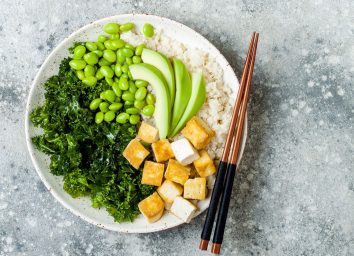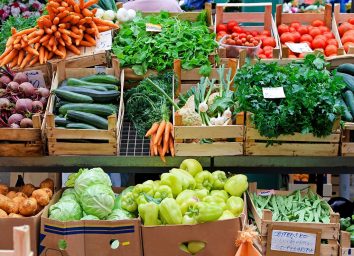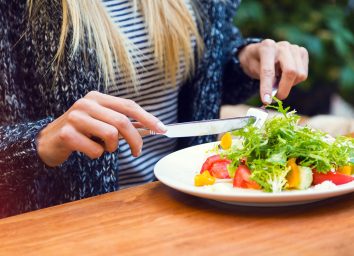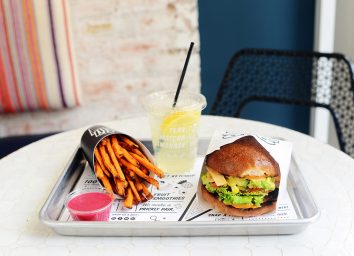How My Life Changed After I Became Vegan
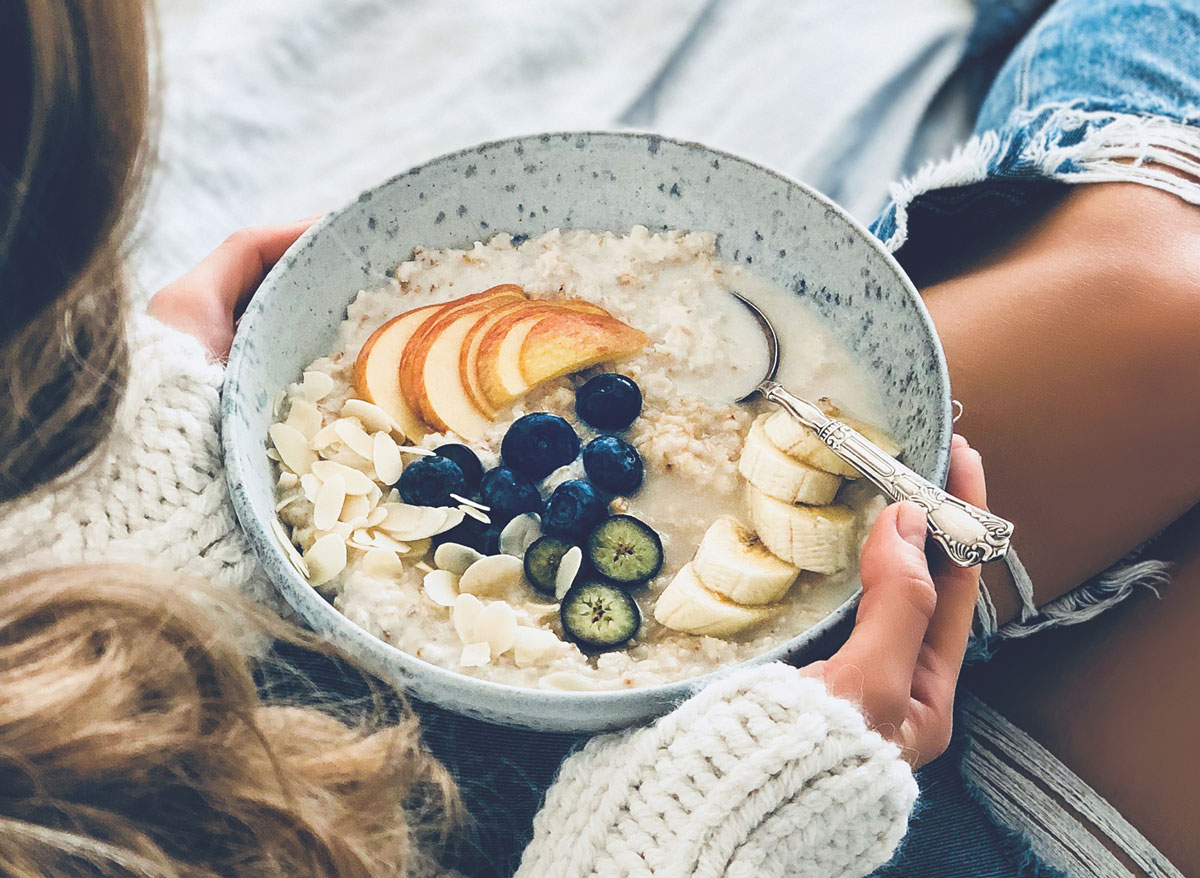
I've always been an animal lover. In fact, growing up I had a few different (all animal-related) dream jobs: becoming a zookeeper, a dolphin trainer, or Jane Goodall so I could spend my days hanging with monkeys.
The sad part is it didn't hit me until much later how contradictory that was with my diet: I wanted nothing more than to keep living creatures safe and wouldn't hurt a fly (or bee), yet I was eating meat, dairy, and eggs at nearly every single meal. When the realization finally sets in that those burgers and wings are sweet and innocent cows and chickens, it changes everything.
How My Vegan Journey Started
I'll never forget when I watched my first documentary about how farm animals are raised. From the moment these animals are born into the meat and dairy industry to the time they reach the slaughterhouse, I saw how completely horrendous farm animals' lives are.
I honestly hadn't thought much about where the food I ate came from—partly because I grew up in Iowa and animal products are a staple, and partly because the highly-processed, standard American diet (which I like to think is abbreviated as "SAD" for a reason) is so disconnected from our food supply. You grow up thinking of your cheeseburger as a cheeseburger, not part of a cow.
The instant I pressed play on that video, I completely lost it. After seeing the reality of what I was eating, changing my ways wasn't even a decision to consider. I never ate another bite of meat again, and over the next few months, I continued to become more and more curious about other parts of my diet as well.
I'll be honest: At first, I didn't want to know where things like milk, cheese, and eggs really came from; I was scared of the truth. But after visiting farm sanctuaries in my area and doing research of my own, it became clear that the egg and dairy industry was just as bad, if not worse, than the meat industry.
No wonder there are laws preventing people from secretly filming the daily abuse that goes down in factory farms or at the slaughterhouse—if people knew the truth about how their food gets to their plates, they wouldn't want to eat it.
At the sanctuaries, I saw chickens missing the very sensitive tips of their beaks due to a painful debeaking process (something both poultry and egg producers do), baby cows who had been separated from their mothers at dairy farms and would have been sold for veal, and pigs who had been saved after being tossed in a dumpster and left for dead, all because they weren't seen as profitable. Knowing this—and so much worse—happens to animals every single day still makes me break down and cry, and it's why I couldn't just be a vegetarian. I had to dive in all the way.
Navigating My New Diet—At Home and Beyond
Now, I'm not going to lie: Figuring out an entirely new diet was really hard for me at first—especially as someone who's not a huge fan of vegetables—and it took me a long time to learn how to become a healthy vegan, not just one whose diet consisted of 90 percent carbs.
Going out to eat was a challenge at first, too. Vegan restaurants are popping up all over now, but many restaurants still don't have a viable option other than salads, sans most of the toppings. The best thing I've learned is to plan ahead. If I'm not sure what I can eat at a particular place, I always call the restaurant before going so I know what my options are, or to find out if there are any substitutions I can make. Then I never feel out of place.
Veganism doesn't just affect your eating, though—it affects all aspects of your life. I never buy anything that uses leather, fur, silk, wool, or any other animal-derived materials. Sometimes that's easy, but other times it's frustrating: I can't even count the number of times an otherwise-vegan product uses a tiny bit of leather, whether that's a logo patch or a zipper pull.
There's also beauty products and items you use around the house to consider, too, and over the years as things have run out, I've replaced them with cruelty-free options in order to not be wasteful. It can be a process—it doesn't have to be a shift you make overnight.
Becoming vegan played a role in my career, too. As a freelance wellness writer (nope, the dolphin trainer thing didn't pan out!), I cover a wide range of topics and many of my stories are about food. Before, my job was simple: I took on pretty much anything I was assigned. Now I can't even count the number of stories—and amount of money—I've turned down because they no longer align with my beliefs. Having to tell someone "no" still feels awkward at times; you don't want to let people down or give them a reason not to work with you. But speaking up for yourself (and the animals!) is so important, and so far all of my editors have been super understanding.
My Life Has Changed, And So Have Others'
Both my friends and family have been really supportive, too—even though I was probably a little annoying as I was first learning everything, rattling off facts in hopes of convincing them to change their ways and see the world how I saw it.
You may have dealt with a vegan who might be a little "preachy," but I hope you can put yourself in their shoes: It's hard not to share what you know when it's so important to you that you changed your entire life around because of it.
Eventually, though, you calm down and let the curious ones come to you—and now, many people in my life have either cut out or majorly cut down on their consumption of animal products. (Except for my dad, who I've come to accept might never give up his steak. Fingers crossed!)
As cheesy as it sounds (no pun intended), going vegan was a decision that helped me truly feel like I'm finally who I'm supposed to be. It's made me even more kind, caring, and loving, it's made me a lot healthier, and it's given me so much confidence.
Sure, sometimes you feel like the oddball at get-togethers when you can't eat anything but the veggie tray, but then you go back home and whip up your favorite vegan junk food, and everything is good in the world again.
